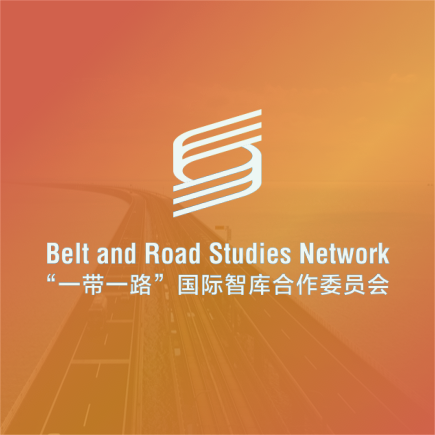

Containers are loaded onto a cargo vessel in Qinzhou Port, Guangxi Zhuang autonomous region, a transit point on the New International Land-Sea Trade Corridor. [PHOTO/XINHUA]
The Chinese government published a white paper in September titled "A Global Community of Shared Future: China's Proposals and Actions", which presented "a new approach for international relations" and "new ideas for global governance".
Given China's relevance in the contemporary order, and the fact that no problem in the world can be effectively addressed without the nation's participation, it is necessary to understand what the Chinese government is proposing. But to allow ourselves to have a productive and open dialogue with Chinese ideas and initiatives, we need to reject the bad influence of the Cold War mentality.
As the white paper states, the objective of a community with a shared future that China has proposed "is not to replace one system or civilization with another" but to abandon "the old path of colonialism and hegemonism". That converges with the desires of the developing Global South.
China's legitimizing argument is that it has no history of colonization or aggression against other countries when it was one of the most powerful nations in the world. The philosophical premise of the Chinese proposal is the notion of harmony, a "core concept of Chinese culture", according to the document.
Chinese wisdom has centuries of intellectual accumulation and social practice, and how the Chinese deal with problems and seek solutions does not always coincide with those that Westerners are accustomed to. Being aware of this fact is essential to understanding the new Chinese diplomacy and possible misunderstandings.
During the 20th century, China dedicated itself to learning Western theories and practices to insert itself into the world institutionally, and now it is China that wants to offer its theories and practices to the world. In other words, China's new posture is accompanied by a new Chinese diplomatic code with its own semantics and pragmatics. This has become part of its repertoire in international relations and has great potential to change aspects that were well consolidated in the global diplomatic culture shaped by the West.
The moment is opportune. The white paper makes a realistic diagnosis of the current world situation: "Our world is at risk of plunging into confrontation and even war.... The global economic recovery is sluggish, and unilateralism and protectionism are rampant." Faced with this scenario, it says, "instability, uncertainty and unpredictability are now the norm".
The environment for global cooperation needs to be improved. According to the World Economic Forum's Global Risks Report 2024, almost two-thirds of nearly 1,500 survey respondents, including academics, businesspeople and government representatives, said the world would experience a stormy or turbulent period.
"Over the next decade, as dissatisfaction with the continued dominance of the Global North grows, an evolving set of states will seek a more pivotal influence on the global stage across multiple domains," the report said. After all, countries in the Global North practice selective multilateralism, excluding the Global South from development benefits.
According to the World Inequality Report, produced by the World Inequality Lab in 2021, the poorest 50 percent in the world own only 2 percent of the world's wealth (in purchasing power parity), while the richest 10 percent own 76 percent of the global wealth. Given this situation, it is not surprising that people from the Global South demand reforms to the current international order.
The world needs to talk about the China-proposed Belt and Road Initiative, which is an example of a new approach to international relations that is having concrete and positive impacts on the economies of participating countries. However, it is more than that.
The spirit of the Silk Road evokes openness to the circulation of new ideas and knowledge. It is no coincidence that among the eight significant steps that China will take to support the joint pursuit of high-quality Belt and Road cooperation, announced by President Xi Jinping at the third Belt and Road Forum for International Cooperation, there are those to support people-to-people exchanges. These include the Silk Road International League of Theaters, the Silk Road International Arts Festival, the International Alliance of Museums of the Silk Road, the Silk Road International Alliance of Art Museums, the Silk Road International Library Alliance and the International Tourism Alliance of Silk Road Cities.
Why are these initiatives essential?
At a time when the Global North is haunting the world with wars, xenophobia, internal divisions and the rise of an extreme right, China is developing a peaceful and development-oriented foreign policy with a series of initiatives — such as the Global Development Initiative, the Global Security Initiative and the Global Civilization Initiative, in addition to the BRI.This could mean the emergence of what I call a new enlightenment multilateralism, in which science, culture and people-to-people ties involving different countries, no matter the political or economic system they have chosen for their societies, are seen as a treasure of humanity and not as a threat.
今年1月,新冠疫情突然而至。为了防止疫情扩散,我国采取了史无前例的交通阻断及人流限制措施,这也为我国农业农村经济发展带来了巨大挑战。
